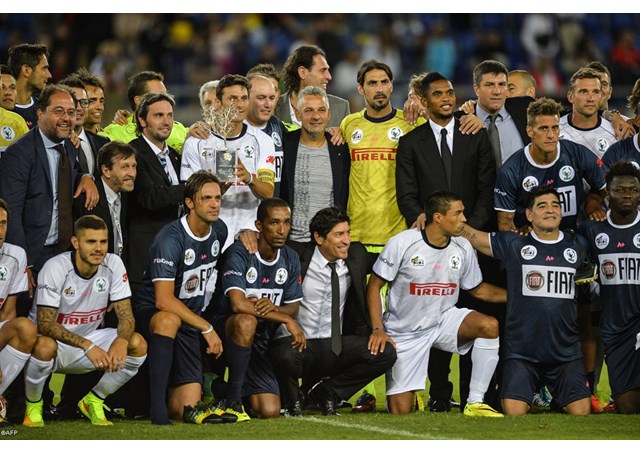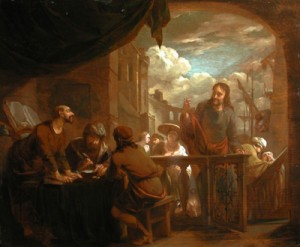 Yes, that Diego Maradona, he of the infamous “Hand of God” goal in the ’86 World Cup. Maradona was in Rome Monday night not simply to see his fellow Argentine Pope Francis, but to play, along with other futbol luminaries Javier Zanetti and Roberto Baggio, in a unique event billed as an “Interreligious Match for Peace”. Zanetti indicated that the “friendly”, played in front of a huge crowd at Rome’s Olympic stadium, was the “express wish of Pope Francis” who wanted to show the power of sport for building bridges of peace.
Yes, that Diego Maradona, he of the infamous “Hand of God” goal in the ’86 World Cup. Maradona was in Rome Monday night not simply to see his fellow Argentine Pope Francis, but to play, along with other futbol luminaries Javier Zanetti and Roberto Baggio, in a unique event billed as an “Interreligious Match for Peace”. Zanetti indicated that the “friendly”, played in front of a huge crowd at Rome’s Olympic stadium, was the “express wish of Pope Francis” who wanted to show the power of sport for building bridges of peace.
And this isn’t the only event Francis has dreamed up in this regard: the Vatican press office today spelled out more about an upcoming conference on sport:
On the occasion of the Interreligious Match for Peace, the Pontifical Council for Culture has organized a three-day seminar, called “Sports at the Service of Humanity: From the Results-Oriented Culture to a Culture of Encounter”. The seminar began on Monday, and ends on Wednesday.
In a video message for Brazil’s World Cup Soccer championship earlier this year, Pope Francis said, Soccer can and should be a school that promotes a culture of encounter. One that leads to harmony and peace between peoples. With that idea in mind, the Pontifical Council for Culture, together with international Catholic sports associations, has organized a two-day seminar to coincide with Mondays Interreligious Match for Peace to reflect on the theme of “Sport at the Service of Humanity”.
Organizers want the discussion to focus on sports as a means of encounter and dialogue rather than what it seems, in many cases, to have become: a lucrative business for a lucky few and a place for winner-takes-all competitiveness. In our highly consumeristic society, we must, they say, “replace the money and the medals with the human being”. One of the objectives of the seminar is preparing for the international Vatican Global Conference on Sport and Faith to be held in the Vatican in September 2015.
I don’t know about you, but I think this is brilliant on Pope Francis’ part. Sport is a huge cultural force that, if you’ll pardon the pun, is an overlooked arena for the furtherance of the Gospel. The soccer match, seminar, and conference is yet another creative evangelistic move by the Holy Father.


 The
The